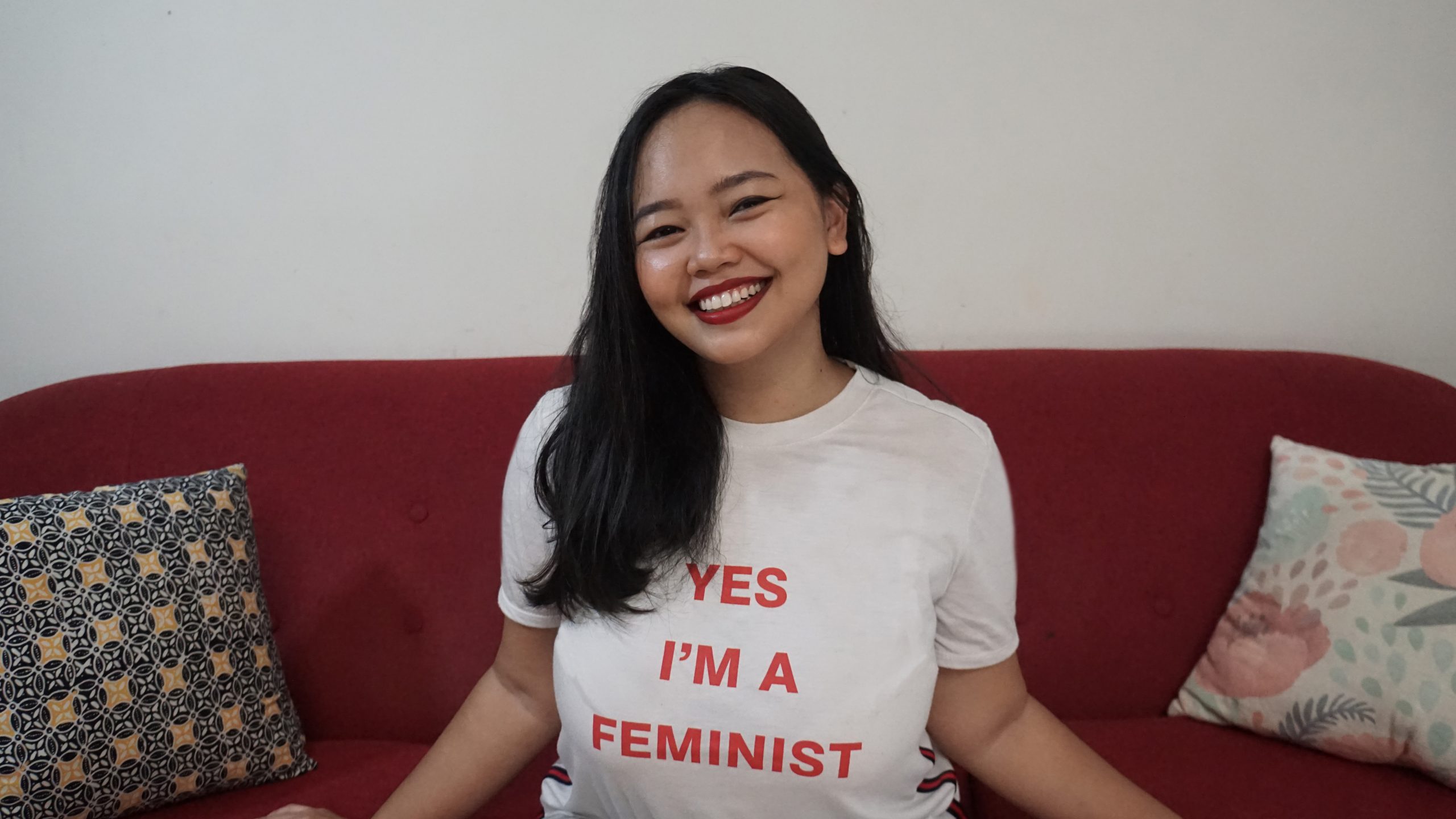Co-Director of Hollaback! Jakarta
A fierce women’s rights activist and advocate, Anindya combines her experience in nonprofit organizations with community-based initiatives to end gender-based violence in the workplace and public places.
Anindya is a bold feminist – as say the description on her social media accounts. Born in Semarang, Central Java in 1990, she makes savvy use of digital tools to execute her public campaigns.
Growing up, the 29-year-old wanted to be an engineer. Anindya was heavily influenced by academics and professors in the extended family on her father’s side – himself an outspoken artist during the Soeharto era. Although activism runs in the family, gender equality was a cause she committed to much later.
Anindya had never specifically thought about women issues, although deep down she knew she was often being discriminated against as a woman. She was first introduced to the concept in her English debating team at university. Then, she became even more enlightened after participating in a program requiring her to work with underprivileged communities in remote areas. The program exposed her to issues affecting women such as child marriage and unregistered marriages (nikah siri).
From then on, Anindya decided to focus her work on gender inequality.
After university, Anindya joined the United Nations Populations Fund (UNFPA), where she was involved in projects investing in women through sexual and reproductive health, working with youth, sex workers, and gender minorities. She helped create youth-friendly clinics to ensure teenagers have access to information and healthcare related to their sexual and reproductive issues.
Later, with Save the Children, Anindya worked to increase youth employment in West Java. There, she noticed most of the unemployed youth she worked with were males. The reason was because most garment factories in West Java preferred to employ women as they were easier to exploit.
Anindya then tried to bring more women to join the training sessions, and found that most of them were not allowed to go by their husbands. “They were really young mothers, I would say they were children who had children,” Anindya said. Unfortunately, her efforts to implement gender lens in the program faced heavy obstacles, even more so because most of her team at the time were males.
With her current role at Hollaback! Jakarta, Anindya gives trainings and workshops on sexual harassment to private and public enterprises, such as ride hailing app Go-Jek and MRT, amongst others.
“If you want to make your office a safe space for everyone it means you have to try solve the problem of sexual harassment,” she said.
For Anindya, GLI is not only about investing in the women, but also those who are most marginalized. Beyond numbers of women CEOs or founders, GLI needs to talk about how it affects minority groups and impacts those who are truly in need.
“I understand talking about women leaders is important because there’s still not many of them, but the issue should not be that binary (between having women leaders or not), but it has to transform into something intersectional,” Anindya said.
Conversations around GLI will have to incorporate other issues, like social class and workers issues, she added.
For the whole space to flourish, advocacy, activism, and business sectors cannot be separated from one another. “A lot of people still stay in their boxes. For example, people from the business or for profit sector and people from the social activism sector often stay within their own lanes and not talk to each other.”
Anindya swears that advocacy works, even when it’s for for-profit ventures. When Go-Jek created a campaign about sexual harassment, its business persona improved. “Did that bring them profit? Yes. Did that bring safety to their customers? Yes.” she says.
“For me, it’s not a problem if you do it for profit,” Anindya said. “What becomes a problem is when businesses do not have enough knowledge or information about issues they want to tackle. Then it becomes merely riding on a trend.”
Making public spaces safer is vital to encourage more women to work and become more productive. Anindya’s knowledge on women issues could open a path for businesses wanting to reach a wider demographic, attract talent, and improve their public image.





